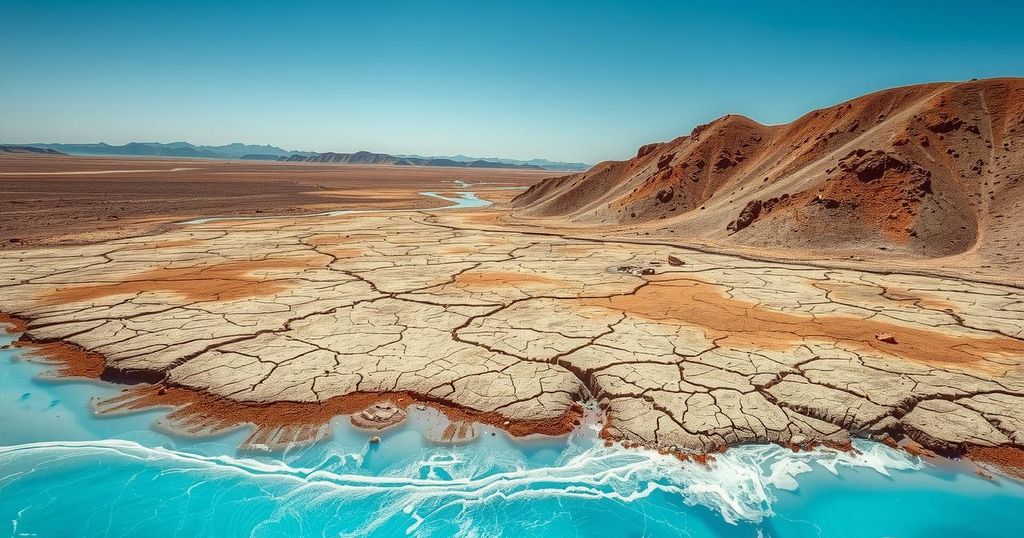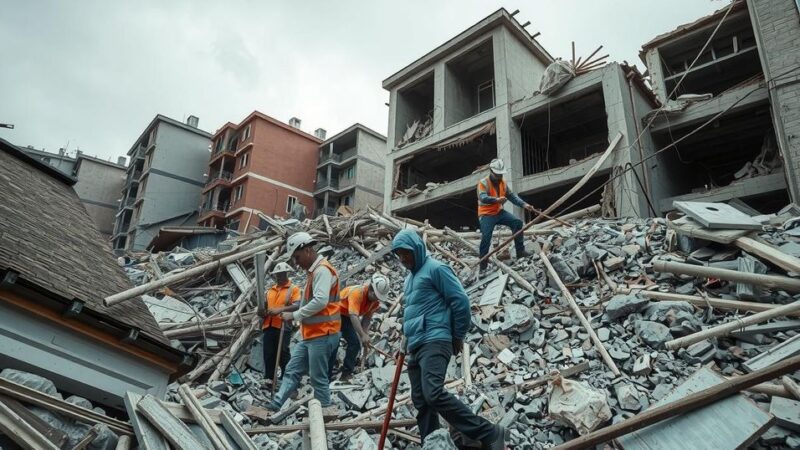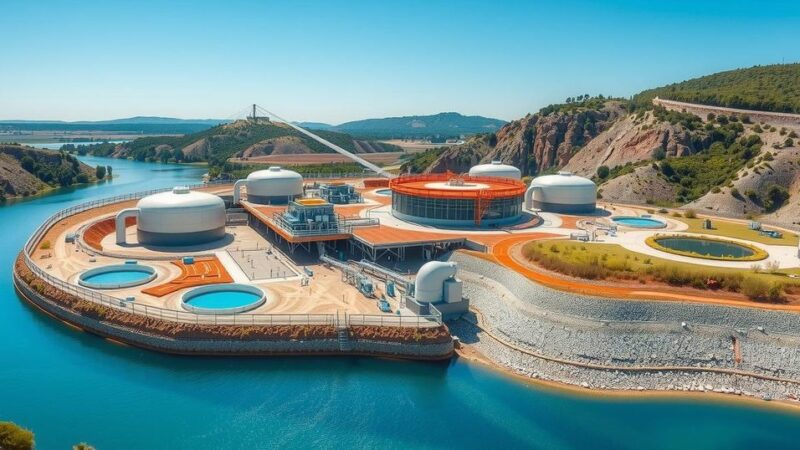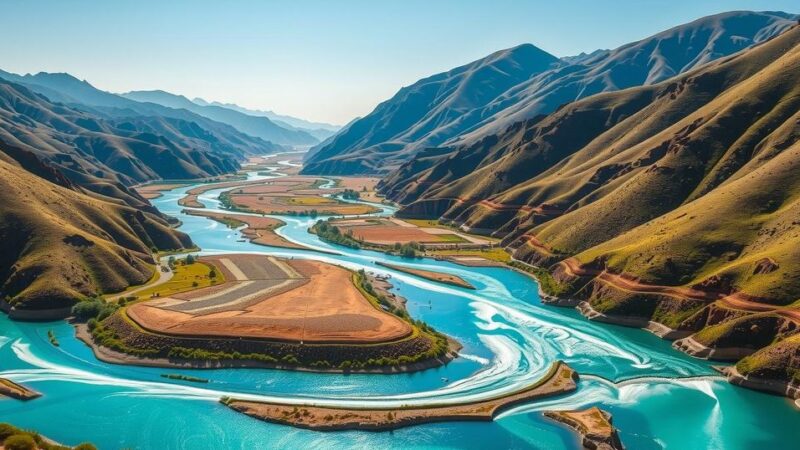South Africa faces a significant water crisis characterized by mismanagement and severe supply issues. The situation has led to a cholera outbreak, notably in Hammanskraal, and impacts Johannesburg residents with supply cuts lasting up to 86 hours. Political leaders attribute these challenges to historical corruption and poor infrastructure, while emerging entities known as the “water mafia” complicate access to clean water. Proposed solutions may involve increased private sector participation to improve water management.
South Africa is currently confronting a severe water crisis that adversely impacts daily life and industry across the nation. Justice Malala, a prominent journalist, shared disturbing observations during a personal visit two years ago in Hammanskraal, a suburb of Pretoria, where a cholera outbreak took 20 lives due to poorly treated water. Residents were compelled to seek alternative means to access clean water, often carrying large canisters home as shopping trolleys became impractical.
As of March 21, 2025, residents of Johannesburg are facing significant water supply challenges, enduring supply cuts that can last up to 86 hours. This situation complicates the fulfillment of basic household needs and poses further difficulties for industries such as car manufacturing and food processing, which are already struggling.
John Steenhuisen, leader of the Democratic Alliance, has attributed these shortages to years of mismanagement and underfunding. He observed, “The system has started to reach a tipping point where it’s failing massively,” noting the paradox of full dams and reservoirs but dry taps. The failure reflects deeper structural problems within municipal governance.
Steenhuisen also criticized local governments for insufficient foresight regarding critical infrastructure maintenance, stating, “You have water, electricity, and sanitation services that are invisible… So it’s very tempting… to say, ‘We’d much rather have a community hall than actually replace the 2km of piping.’” This trend of neglect has highlighted serious shortcomings in water management practices.
In South Africa, the average daily water consumption stands at approximately 237 liters per person, significantly above the global average of 173 liters. The country is hampered by insufficient water treatment and recycling options. As former minister Senzo Muchunu noted, aging infrastructure is responsible for approximately 35% leakage rates in Gauteng alone. “We are a water-scarce country, but we still have just enough water…” Muchunu emphasized, underlining the urgent need for corrective actions.
The history of South Africa’s water crisis can be traced back to the governance issues under former president Jacob Zuma from 2009 to 2018, characterized by corruption that led to misallocated funds and uncompleted projects. An anonymous finance ministry official revealed problematic relationships between political influences and local maintenance contracts, which significantly diminish service quality.
Muchunu also discussed the rise of a so-called “water mafia,” indicating a troubling element complicating local authorities’ struggles. These groups reportedly manipulate clean water access by sabotaging pipelines and then profiting from selling tanker-delivered water. “There’s a water ‘mafia’. They cut the line…” recounted an industry businessman, highlighting the need for comprehensive reforms in water management.
The government is exploring solutions that include engaging the private sector to enhance water delivery systems. The creation of the National Water Resources Infrastructure Agency aims to provide oversight and establish a framework for private investment in the water sector. Steenhuisen articulated, “The idea now is to bring in private sector players and ensure that municipalities ring-fence revenues.”
Successful partnerships between the government and private entities in energy sectors may offer a template for improving water management. As Muchunu reiterated, “People want water now.” This urgent demand resonates throughout communities affected by consistent water failures. Structural reforms and accountability measures are vital in addressing the current crisis.
The ongoing water crisis in South Africa underscores the critical need for effective water management and infrastructure maintenance. Key figures, including John Steenhuisen and Senzo Muchunu, have highlighted significant mismanagement and corruption that have led to current supply issues. Collaborative efforts with the private sector may help restore adequate water service delivery and build public trust. The urgency of addressing these challenges is paramount for the wellbeing of South African communities.
Original Source: evrimagaci.org






